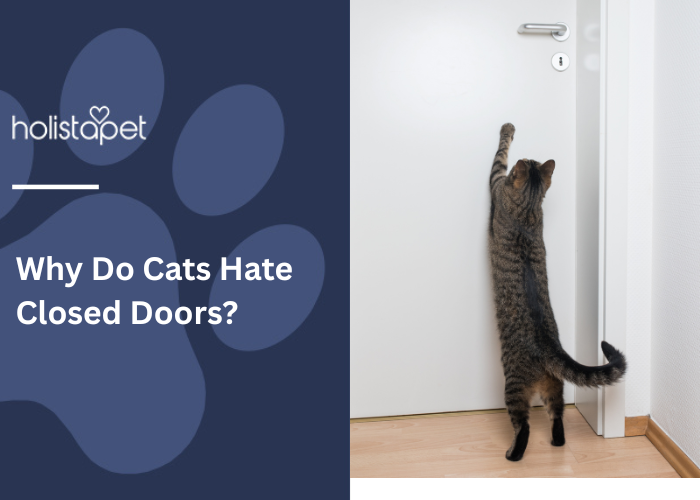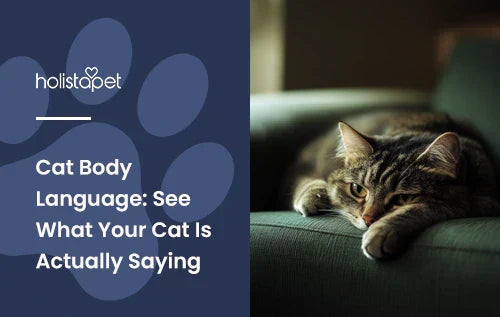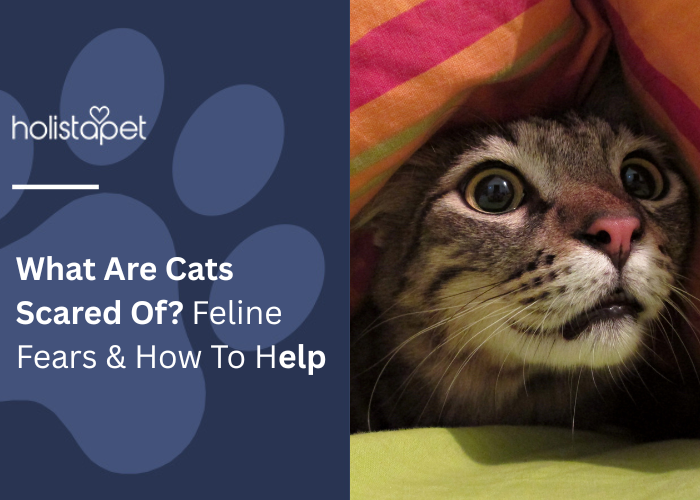Many of our feline friends despise closed doors like they despise empty bowls when hungry: loudly and with zero shame. Ask yourself, why do cats hate closed doors? Easy—because they weren't the ones who closed it.
That door is a barrier to all the stuff they might want to ignore… or might want to inspect in the next five seconds. And now it's off-limits? Scandalous! You just challenged their independence, their routine, and their entire personality. Now, they've got some feelings about that.
Is It Normal for Cats To Hate Closed Doors?

Yes, it's normal for cats to hate closed doors. In fact, if your kitty doesn't make a scene about it, that's the weird part. Most cats act like a shut door is a personal attack on their freedom.
They want access, period. Not because they need something but because it's there. A closed door screams, "You can't," and felines don't take orders from anyone.
So, if you notice that your cat meows, paws, or throws a whole fit at a closed door, congrats! You've got a very normal, very dramatic furball on your hands.
The Nature of Feline Independence and Control
Freedom is a non-negotiable for cats. When you keep doors shut around their territory, it messes with their whole vibe. These little kings and queens of the house aren't fans of rules. They like being in charge of their space, schedule, and you.
When they lose control—even just a bit—it throws them off. Cats like to maintain order, and that sense of control helps them feel safe. So when a door slams shut, it feels like a power shift, and they are not here for it.
How Cats React To Restricted Access
The moment a door closes, the drama begins. Your cat suddenly becomes a full-time protester with all the meowing, pawing, and pacing. That's because they hate getting told "no," even if it's with a door.
Some cats will sit by that closed door, looking abandoned and acting upset and confused. Others will scratch like they're digging for treasure on the other side. It's the principle. They know there's something behind that door, and if they can't get to it, they will make sure you know how they feel.
Common Reasons Cats Dislike Closed Doors

Closed doors offend cats on a deep, emotional level. Here's why your kitty throws a fit every time the door shuts:
-
Territory Disruption. Cats believe the entire house is theirs. A closed door messes with that belief.
-
Curiosity Overload. Our curious feline friends want to know what's happening behind the barrier.
-
Fear of Missing Out. Your cat assumes something exciting is going down on the other side without them.
-
Separation Anxiety. Your companion may feel lonely or upset if they can't be near their favorite human.
-
Control Issues. A locked door says they're not in charge of their environment, which they don't like.
-
Negative Associations. Past bad experiences or getting trapped before might make your cat hate anything that blocks their exit.
-
Access to Needs. Their food, litter box, or favorite toy could be in the other room.
Curiosity and Territorial Instincts
Cats need to know what's behind the door. That's typical curious cat behavior. If something's off-limits, it instantly becomes the most interesting thing in the house.
They're also super territorial. Every inch of your home is basically theirs. When a door closes, it's like you drew a line they didn't approve.
Separation From Their Favorite Human
Your cat may act like they don't care, but they're obsessed with you. Shut a door between you and your kitty, and suddenly, it's a tragedy. They'll meow like you've disappeared forever. Yeah, they're complex creatures.
They don't want to get shut out of your life (or your bathroom). Being close to you gives them comfort, and a barrier messes with that. If you're their go-to human, they want to be where you are always.
Fear of Missing Out (FOMO)
Your cat's got serious FOMO. If there's a closed entryway, they know something fun is going down on the other end. Could be treats, could be a bug, could be absolutely nothing. But they still need to check.
Most cats want to involve themselves in everything, even if it's just watching you fold laundry. Shutting the door means they're not invited, and that's just rude. In their world, feeling left out is unacceptable.
Claustrophobia or Negative Past Experiences
Some cats learn through negative experiences that closed doors can make them feel trapped. If your kitty's ever been stuck somewhere before, it can bring back some seriously unpleasant feelings.
Even large cats can freak out if they feel boxed in. That memory sticks. Now, every shut door feels like a threat, not just an annoyance.
Behavioral Signs Your Cat Hates Closed Doors

Cats don't usually hide their feelings, and this situation is no exception. Confused cat parents should look for these odd behaviors:
-
Relentless Meowing. Your cat might vocalize their frustration until you keep that door open.
-
Scratching or Pawing. Those tiny paws turn into little battering rams, demanding entry.
-
Door Guarding. Some cats will sit by the door like statues, like they're planning their next move.
-
Pacing or Circling. Restless walking back and forth can show they're feeling upset.
-
Sudden Mood Shifts. Your cat's energy can flip fast around closed spaces.
Scratching, Pawing, or Meowing at the Door
Scratching and pawing are loud statements to let them in. Then comes the vocalizing: long, dramatic, and nonstop meowing sounds. It's the feline version of ringing the doorbell over and over again.
Some cats go wild with scratches, whines, and dramatic flops right in front of the door. They're not negotiating but demanding entry with flair.
Pacing or Sitting by the Door for Long Periods
Other cats play the long game. They'll sit by the door like a fluffy statue, staring it down with silent judgment. Others will pace back and forth like they're waiting for someone to roll out the red carpet.
This behavior says they're not done with that room. Whether it's food, fun, or just the idea of not knowing something, they're not walking away without a fight.
Should You Let Your Cat Have Free Access?
Sometimes, doors need to stay closed. Still, if it's safe, letting your cat roam can reduce the drama. If your pet had it their way, every door would stay wide open forever. It would make them feel like royalty again.
Just know that if you decide to shut that door, be ready for the stink eye. Your feisty companion's not giving up their reign without a tiny, adorable protest.
Safety Considerations for Different Rooms
Certain rooms in your house may not be cat-friendly. Think bathrooms with toilet lids up, kitchens with hot stoves, and laundry rooms with open machines.
If your cat's trying to barge in, ask yourself: "Is this space safe for paws and whiskers?" If not, that door needs to stay shut no matter how loud the complaints get.
Baby gates, cat-proofing, and good old-fashioned supervision can help. You need to make sure your nosy buddy stays out of trouble. "Curiosity killed the cat" is a warning you shouldn't ignore.
Setting Healthy Boundaries Without Causing Stress
You can say "no" to your cat without causing a full-blown meltdown by setting boundaries without making them feel shut out, literally and emotionally.
For example, try cracking the door or adding a clear panel so they can peek in. Give them something fun on their side of the door, like a toy, treat, or cozy perch.
When you create positive vibes around boundaries, they'll chill out. Well, mostly. They're still cats, after all. Expect a little sass with your structure.
How To Help a Cat That Gets Anxious Around Closed Doors

Some kitties don't handle blocked entryways well, especially if it triggers worried or negative thoughts. The solution is to keep things calm and consistent. Offer comfort and let them know there's nothing life-changing on the other side.
Try setting a routine so they know what to expect. That tiny bit of predictability can make a big difference in how they react to closed spaces.
Gradual Desensitization and Positive Reinforcement
You can teach your cat that closed doors aren't the end of the world without the drama. Start small. Close the door for a few seconds, then open it like it's no big deal. Reward them when they stay calm. A treat, a toy, or some chin scratches can help them chill out and connect the door with good vibes.
Keep it consistent and gentle. Over time, your feline friend might just stop throwing a fit every time a door clicks shut. Keyword: might. They're still cats.
Using Calming Aids Like CBD or Pheromone Sprays
Sometimes, a little extra help goes a long way, especially if your cat stays upset no matter what. Calming aids like pheromone sprays can mellow the mood and make closed doors less of a big deal.
CBD (cannabidiol) is another great option. It supports relaxation and helps ease those anxious behaviors without making your cat feel groggy or weird.
HolistaPet offers CBD products made just for cats, using natural ingredients to help them feel safe and chill. Choose from our CBD Cat Treats, CBD Calming Chews, CBD Oil, and CBD Capsules. If your sidekick needs a bit of comfort, this might be the purrfect solution.
Final Thoughts on Why Cats Hate Closed Doors
So, why do cats hate closed doors? Because they're bold, curious, and completely done with your boundaries. You don't have to give in every time, but a little understanding goes a long way. Want to ease the tension? HolistaPet's calming CBD products might just keep the peace without sacrificing your sanity.
Because in your cat's world, every room is theirs. You just live in it.


 CBD Oil for Cats - Fast Acting
CBD Oil for Cats - Fast Acting
 CBD Cat Treats - Easy Dose
CBD Cat Treats - Easy Dose
 CBD Calming Chews for Cats - Highly Rated
CBD Calming Chews for Cats - Highly Rated
 CBG Oil for Dogs and Cats - Loved by Thousands
CBG Oil for Dogs and Cats - Loved by Thousands





Leave a comment
All comments are moderated before being published.
This site is protected by hCaptcha and the hCaptcha Privacy Policy and Terms of Service apply.